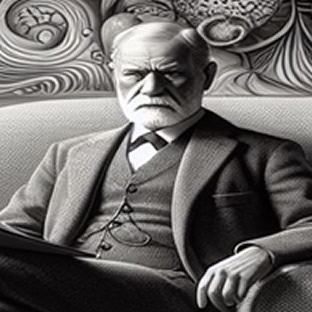In former posts we saw that the so-called personalist and phenomenological paradigms are actually umbrella terms under which shelter many approaches and theories, many of which might be considered sub-paradigms. This will also be the case with the psychological paradigm. Here we have to do with an ombrellone covering a vast range of psychological theories and practices. There is no question of attempting an overview of these positions in a single blog. What seems possible, albeit in a suggestive rather than an apodictic manner, is to identify some of the contours of the umbrella itself, that is to say the very idea of psychology. To this end a famous statement of Sigmund Freud (1856-1939) comes to mind: “Wo Es war soll Ich werden” which is often rendered into English, somewhat inadequately, as “Where the Id was the Ego shall be”. (The translation loses the force of Freud’s play on the first person singular pronoun Ich.) This statement was made at the end of an attempt to explain the purpose of psychoanalysis but it can serve us here as a way of identifying some key characteristics of any would-be psychological paradigm, meaning as always by paradigm “a comprehensive, prescriptive model for…
As indicated at the end of the recent blog Cosa vuoi? on desire in Jacques Lacan, I wish now to reflect briefly on the implications of this line of thought for moral theology. Let me say at the outset that I have been for many years, and remain to this day, a fervent disciple of Aristotle and Thomas Aquinas on this question. Their programme could be summed up in the phrase “educating desire” (A. MacIntrye). The human being is seen as an essentially rational being who has the redoubtable task of controlling his (or her) various desires so that they do not wreck havoc in his life and that of those with whom he intimately associates. The only way to do this is to practice individual acts of moderation etc. so as to develop the corresponding virtues, which make the moral life possible. All this constitutes a theoretical and practical model of human thriving which has served generations of human beings in various cultural contexts. The thought of Lacan, inspired by Freud, however, puts this schema into what is technically known as “epistemological crisis”. An epistemological crisis occurs within a discipline, such as ethics or moral theology, when new data…


